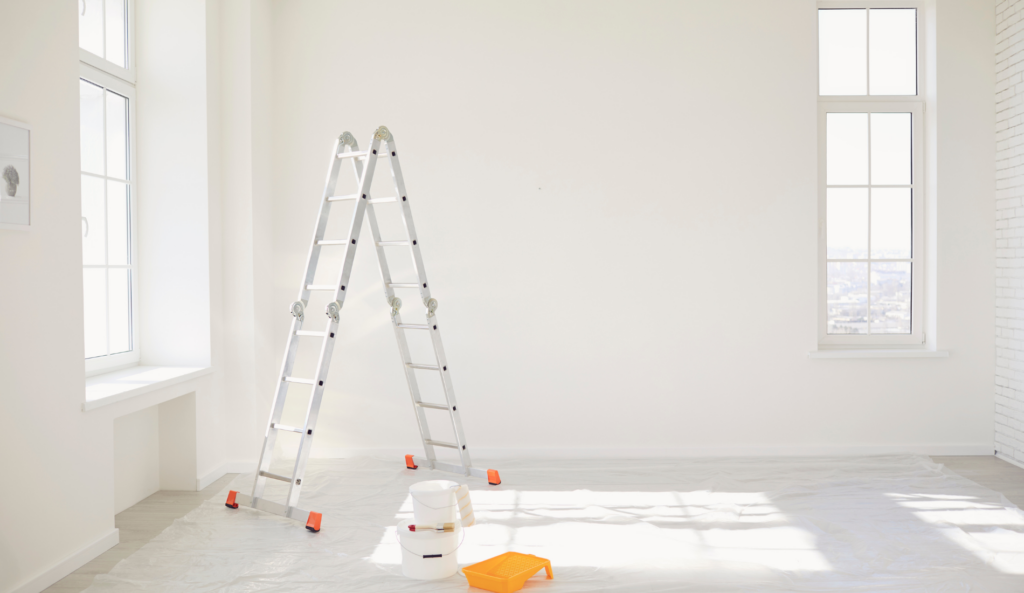Have you ever wondered if it is safe to sleep in a freshly painted room? Many of us are unaware of the potential health risks associated with sleeping in newly painted spaces. It can be difficult to know when it is safe to move into a space after painting, as well as what precautions should be taken when doing so. In this article, we will discuss the potential risks associated with sleeping in a freshly painted room and provide tips on how to make sure your bedroom or other living space is safe for everyone. By understanding these issues, you can ensure that your home remains healthy and comfortable for all who enter.
Health Implications of Sleeping in a Freshly Painted Room
Breathing in paint fumes can cause a variety of health risks, including headaches, dizziness, nausea, and other symptoms. Paint fumes consist of volatile organic compounds (VOCs), which are harmful chemicals that can have various negative impacts on your health. Exposure to these chemicals can lead to neurological issues such as fatigue, confusion, or difficulty concentrating, and even respiratory problems such as asthma and bronchitis. Long-term exposure to VOCs has been linked to an increased risk of cancer. Additionally, the presence of solvents and other hazardous materials in paint vapor may further contribute to potential health risks. It is important to ventilate the area if possible and avoid sleeping in a freshly painted room for several days until the paint has fully dried and the VOC concentrations have returned to acceptable levels.
Steps to Take in Order to Sleep Safely in a Freshly Painted Room
- Open all windows and doors in the freshly painted room, to allow for adequate ventilation. If possible, install a fan in the window to help push out paint fumes.
- Make sure that the room is not too humid or damp, as this can increase the levels of paint fumes present in the air. A dehumidifier can help regulate humidity levels.
- Avoid using artificial heat sources such as space heaters or hot water bottles, as these may dry out the paint before it has had time to fully cure and release any remaining VOCs into the air.
- Place an air purifier with a high-efficiency particulate air (HEPA) filter in the room, which will help to remove any lingering particles of paint fumes from the air.
- Regularly change out your HVAC filters and clean them often, especially if they are located near where you are painting or sleeping in newly painted rooms. This will prevent dust and other airborne particles from circulating throughout your home and reduce exposure to paint fumes even further.
- Allow newly painted surfaces to fully cure before sleeping in that space; how long this takes depends on what type of paint was used and what surfaces were coated with it but for most types of paints this process takes about two weeks or so .
- Wash any bedding regularly if sleeping in a freshly painted room; washing removes any build up of residue from dust and VOCs that may accumulate over time, reducing potential exposure even more.

Alternatives to Sleeping in a Freshly Painted Room
- Staying with Friends or Family: This option would allow the person to avoid sleeping in a freshly painted room while still having access to a comfortable place to rest. Staying with family or friends may also provide peace of mind, allowing the individual to remain nearby and stay updated on how long it will take for the paint to properly dry.
- Renting a Hotel Room: Renting a hotel room for the night is another viable option for those who need somewhere safe and comfortable to sleep during painting projects. Although this option may be more expensive than staying with family or friends, it provides added convenience and assurance that VOC levels are not present. Furthermore, many hotels offer packages that include discounts for longer stays, making it a more cost-effective alternative.
- Camping Outdoors: For those who don’t have access to other accommodations, camping outdoors can be a great way to avoid exposure to paint fumes. It is important, however, to make sure that you are camping in an area where air quality is not compromised by any potentially hazardous materials or chemicals. Additionally, it is recommended that campers bring their own bedding material as well as insect repellent and other amenities so they can enjoy a comfortable night’s sleep in nature.
To Summarize
It is important to remember that sleeping in a freshly painted room can be hazardous if proper precautions are not taken. To ensure safety, it is best to ventilate the area as much as possible and avoid sleeping until the paint has fully dried. If this isn’t an option, alternatives such as staying with friends or family, renting a hotel room, or camping outdoors may provide better options for avoiding exposure to paint fumes. By taking into consideration these tips and suggestions on how to sleep safely in newly painted rooms, you will be able to rest easy knowing that your health and well-being are protected from any potential harm caused by VOCs present in the air.


